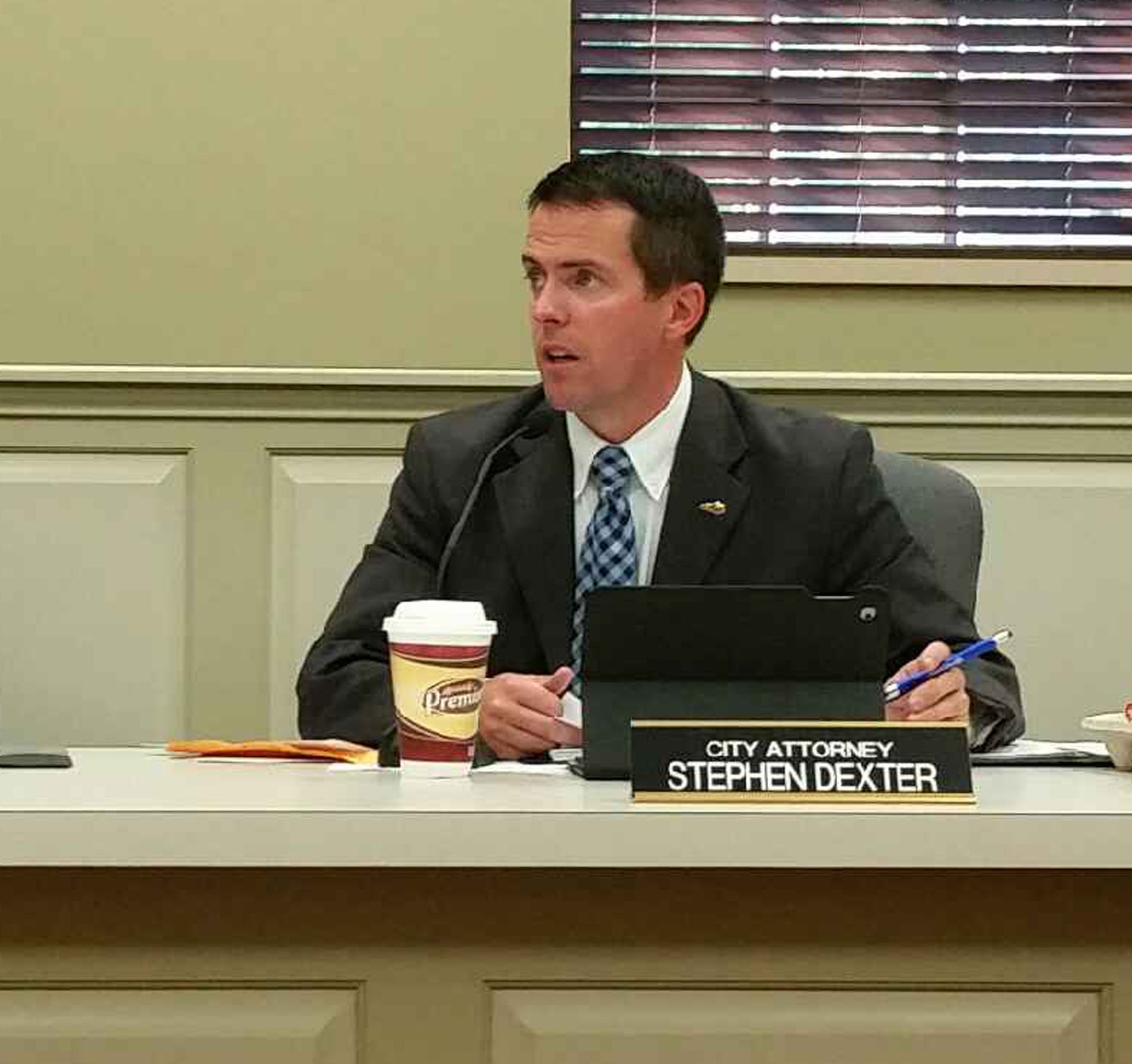Water penalties with state resolved
Published 7:37 am Wednesday, October 11, 2017

- Kendra Peek/kendra.peek@amnews.com City Attorney Stephen Dexter addresses the Danville City Commission on Monday night.
City attorney also talks about Supreme Court ruling in favor of newspaper
Danville City Commissioners approved a resolution of an order with the Commonwealth of Kentucky Energy and Environment Cabinet which includes mandatory reporting, a corrective action plan and a penalty of $8,000 regarding the city’s sewer system.
The order shows that the cabinet “recognized the city’s commitment and previous investment in the sewer system,” said City Engineer Earl Coffey.
“There will be stiffer penalties if you don’t comply,” he said.
Lexington, for example, Coffey said, paid about $40,000 in penalties. Danville is paying $8,000.
“The sewer rate is hard to swallow for a lot of people. Had we not moved on it, we would be looking at penalties similar, or larger, going down the road from the state and federal government,” said City Commissioner Rick Serres.
Coffey agreed and said the state had encouraged the city to be proactive about fixing the problems.
“That gives them a lot more flexibility in how they manage our compliance,” he said.
Mayor Mike Perros said while the rate increase was gaining attention locally, if the problems hadn’t been fixed, it could have caused an overflow into Herrington Lake or something similar, which would have garnered state attention.
“We didn’t need any of that,” said Perros. “And if we’re going to be responsible, everyone’s talking about we want to be green and we want to protect the environment, well, that comes at a cost. That’s where we are.”
City Attorney Stephen Dexter was quick to point out that the overflows had only been in “large waterfall rain events,” and, when tested, the waters had not contained pollutants.
“It’s largely storm water that’s causing the overflow in those situations, that resulting in expensive engineering to fix,” he said.
That’s a battle all cities are facing, Coffey said.
Dexter reacts to Supreme Court ruling
Dexter also shared about the outcome of a lawsuit between the city of Danville and The Advocate-Messenger, which was rendered in the newspaper’s favor last week, after it was heard at the Kentucky Supreme Court.
“There were a lot of positive things in the opinion that, in fact, edified the city’s position, that I think are worth commenting on tonight,” Dexter said. “The charges, as they arose, were that the city met in some covert operation, with some nefarious clandestine purpose of buying property without public input. Those were the claims.
“What the court edified, significantly, is that the city lawfully called and met in executive session. Everything that was discussed therein was, in fact, lawful.”
Dexter said that the point where the court says the city’s actions became illegal were when the city failed to announce an intention to bid, which is required by law in situations of a public auction.
“The court acknowledged that this was new. This was a case of first impressions. It would have never have reached the supreme court had it not been gray. It would have never reached the supreme court if you wouldn’t have had public agencies and municipalities across the state cry out by virtue of the ruling,” Dexter said.
He pointed to the Kentucky League of Cities, which filed a brief in favor of the city; and the Kentucky municipal attorneys association file a “friend of the court” brief supporting the city.
“It’s a significant case, there was a lot of gray, it was never clear cut,” he said. “There is in fact a new requirement — the city accepts it … now we know.
“There is now clarity to the law.”
He said the court acknowledged that the city never intended to evade the law and that the city attempted to obtain land at a price “advantageous to the taxpayer.”
“There was no attempt to defy transparency or evade public scrutiny,” Dexter said.
He was asked if he thought this law could be impacted by the ruling.
“Based on statewide interest, I would not be surprised if there was some legislative effort to have the general assembly weigh in and carve an exception to allow cities and public agencies to meet in closed session and decide to make bids just as they do with private, arms-length negotiations.”
SO YOU KNOW
The case City Attorney Stephen Dexter is referring to involved the former Boyle Industrial Storage Company (BISCO) building, which the City of Danville purchased for about $1.23 million at an auction in the summer of 2012. Five years to the day after the Attorney General first ruled that Danville violated the Open Meetings Act when it authorized purchase of a building behind closed doors, the Kentucky Supreme Court delivered the final word on the matter, affirming multiple lower court rulings that the city broke the law.
The Supreme Court ruled Danville took action illegally in closed session because it feared publicity could change the price of the building it wanted to buy, and because officials had a “misconception of the law applicable to bidding at public auction without reserve.”






